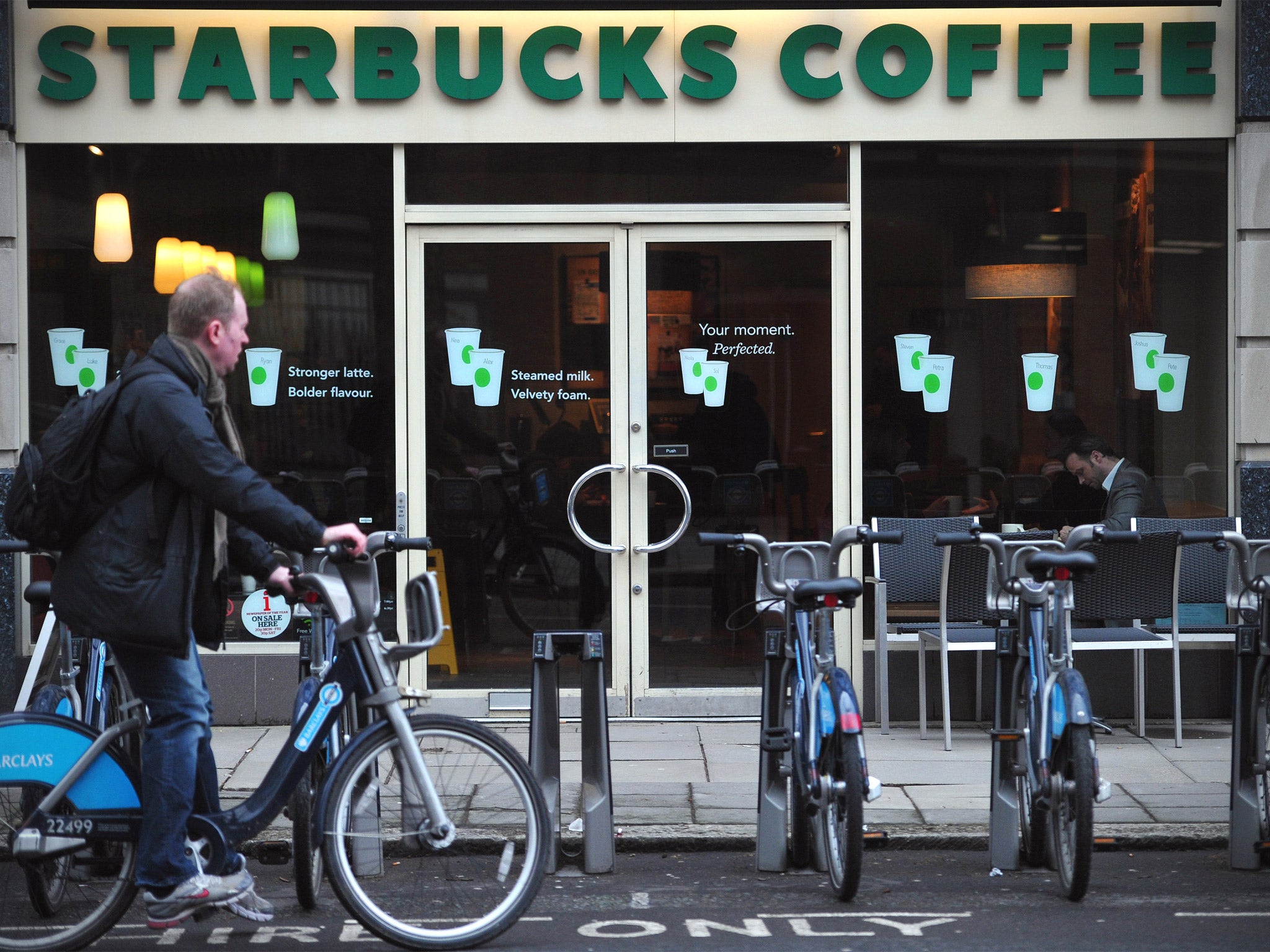Starbucks relocates to London: Company's move to 'coffee capital of the world' - and a bigger tax bill - hailed as 'partial victory' by MPs
The US giant has been battling to repair its reputation since it emerged that it reportedly paid only £8.6m in UK corporation tax over 14 years despite making as much as £400m between 2009 and 2012

Starbucks has hailed London as the Silicon Valley of the coffee industry after announcing it is moving its European headquarters to the city.
The US giant has come under fire over its tax arrangements but said the move would result in an increase in the UK tax it pays, in what MPs described as a “partial victory”.
Kris Engskov, Starbucks’ president for Europe, Middle East and Africa, declared London was “the perfect place” to move to as the UK is its fastest growing European market.
“I think it would be very hard to ignore the progress London has made around coffee,” he told The Independent. “Maybe this is an extreme example, but if you’re in the technology business you’d look at Silicon Valley. I think increasingly London is becoming that in Europe for the coffee business.”
The capital, he said, has become an “innovation centre for coffee and espresso [and] we’ve got to be in the middle of that”.
Starbucks – which said it will open more than 100 cafés this year – also promised it will pay more tax in the UK because of the move of its European, Middle East and Africa headquarters from the Netherlands.
The firm has been battling to repair its reputation since it emerged in 2012 that it reportedly paid only £8.6m in UK corporation tax over 14 years despite making as much as £400m between 2009 and 2012. That sparked protests, and executives from Starbucks appeared in front of the Public Accounts Committee to be grilled on the company’s tax payments.
They told MPs the company had made a loss in the UK in 14 out of the 15 years it had operated here, though this was achieved by paying fees to other areas of its business. Last year, Starbucks tried to appease critics by volunteering to pay as much as £20m in UK corporation tax over two years, whether or not it made a profit.
The chair of the Public Accounts Committee, Labour MP Margaret Hodge, described the chain’s decision as a “partial victory”, saying: “While we obviously welcome Starbucks choosing to move their headquarters to the UK, this may actually not involve many new jobs or indeed significant extra tax revenue for the Government.”
She added: “As the company has said, tax was not the deciding issue but the strength, size and potential of [the] UK market. We will have to wait and see if the reality matches the rhetoric.”
The news was welcomed by business groups, with Colin Stanbridge – the head of London Chamber of Commerce and Industry – saying it “greatly reinforces London as a key global centre for business and a highly desirable location for firms to base their operations”.
It is another boost for London, which already has a dominant position as the business capital of Europe.
Big business: How to beat the taxman
Computer giant Apple did not pay any UK corporation tax in 2012, according to filings in June last year. This is because the vast majority of its non-US operating income is accrued by the Irish-based firm Apple Sales International. This firm paid tax at a rate of 0.05 per cent in 2011, according to a report in the Financial Times.
Food chains such as Café Rouge, Nando’s, Pizza Express and Pret A Manger have also cut their tax bill by borrowing money from their parent companies through the Channel Islands Stock Exchange, as revealed by Corporate Watch and The Independent last year. The owners lend money to their firms – instead of buying shares – and the amount of interest charged reduces the taxable profit. They don’t have to pay tax on the interest because of a loophole called the “quoted Eurobond exemption”.
High street retailers such as BHS, Maplin and Pets At Home have also used this method of reducing tax payments. So have power companies Scotia Gas, UK Power Networks and Electricity North West, and the national lottery company, Camelot.
Bookmakers including William Hill and Ladbrokes, and casinos, avoided paying £1bn in tax by routing bets through overseas tax havens, The Independent revealed last year.
Subscribe to Independent Premium to bookmark this article
Want to bookmark your favourite articles and stories to read or reference later? Start your Independent Premium subscription today.

Join our commenting forum
Join thought-provoking conversations, follow other Independent readers and see their replies